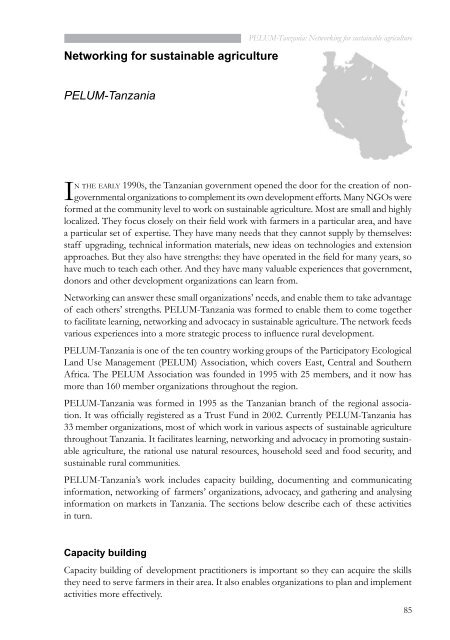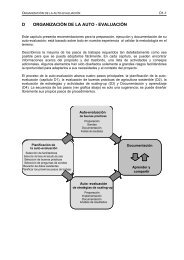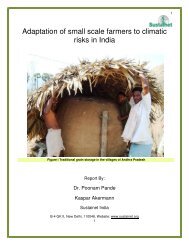cases from tanzania - Sustainet
cases from tanzania - Sustainet
cases from tanzania - Sustainet
You also want an ePaper? Increase the reach of your titles
YUMPU automatically turns print PDFs into web optimized ePapers that Google loves.
Networking for sustainable agriculture<br />
PELUM-Tanzania<br />
PELUM-Tanzania: Networking for sustainable agriculture<br />
n the earLy 1990s, the Tanzanian government opened the door for the creation of non-<br />
igovernmental<br />
organizations to complement its own development efforts. Many NGOs were<br />
formed at the community level to work on sustainable agriculture. Most are small and highly<br />
localized. They focus closely on their field work with farmers in a particular area, and have<br />
a particular set of expertise. They have many needs that they cannot supply by themselves:<br />
staff upgrading, technical information materials, new ideas on technologies and extension<br />
approaches. But they also have strengths: they have operated in the field for many years, so<br />
have much to teach each other. And they have many valuable experiences that government,<br />
donors and other development organizations can learn <strong>from</strong>.<br />
Networking can answer these small organizations’ needs, and enable them to take advantage<br />
of each others’ strengths. PELUM-Tanzania was formed to enable them to come together<br />
to facilitate learning, networking and advocacy in sustainable agriculture. The network feeds<br />
various experiences into a more strategic process to influence rural development.<br />
PELUM-Tanzania is one of the ten country working groups of the Participatory Ecological<br />
Land Use Management (PELUM) Association, which covers East, Central and Southern<br />
Africa. The PELUM Association was founded in 1995 with 25 members, and it now has<br />
more than 160 member organizations throughout the region.<br />
PELUM-Tanzania was formed in 1995 as the Tanzanian branch of the regional association.<br />
It was officially registered as a Trust Fund in 2002. Currently PELUM-Tanzania has<br />
33 member organizations, most of which work in various aspects of sustainable agriculture<br />
throughout Tanzania. It facilitates learning, networking and advocacy in promoting sustainable<br />
agriculture, the rational use natural resources, household seed and food security, and<br />
sustainable rural communities.<br />
PELUM-Tanzania’s work includes capacity building, documenting and communicating<br />
information, networking of farmers’ organizations, advocacy, and gathering and analysing<br />
information on markets in Tanzania. The sections below describe each of these activities<br />
in turn.<br />
capacity building<br />
Capacity building of development practitioners is important so they can acquire the skills<br />
they need to serve farmers in their area. It also enables organizations to plan and implement<br />
activities more effectively.<br />
85




